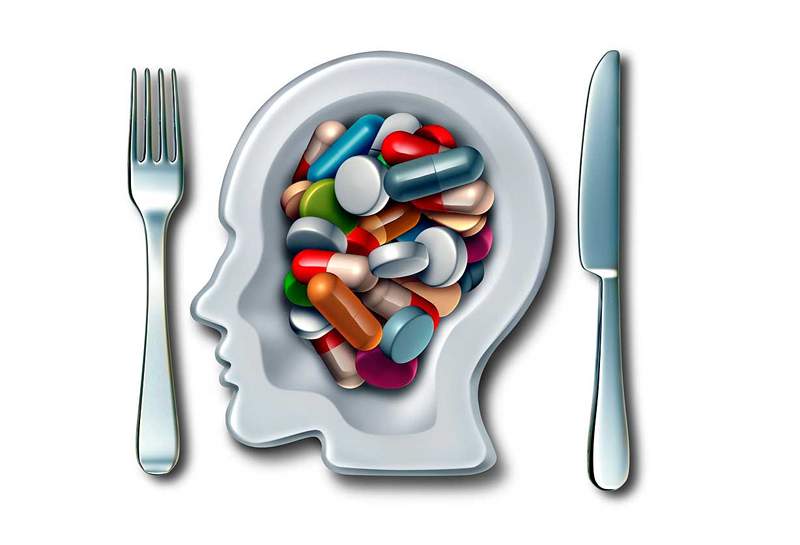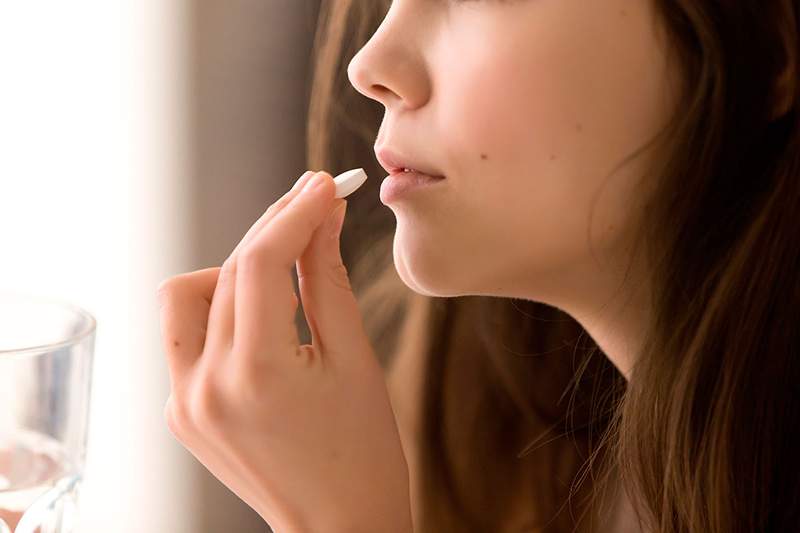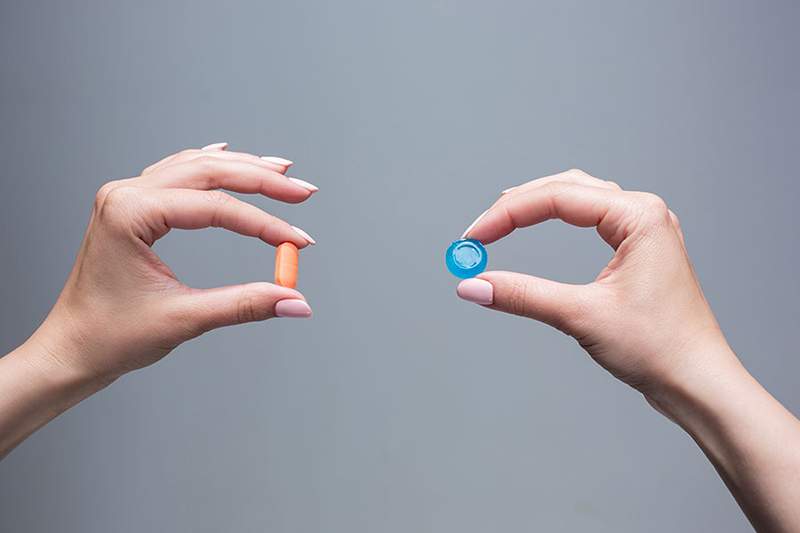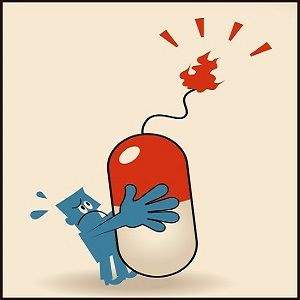What is the placebo effect?

- 3921
- 818
- Hugh Greenholt
The placebo effect This is what happens when a person takes a medication or substance that he thinks he will help him, although he is actually in harmless and somehow produces a therapeutic effect. The medication or treatment itself is known as a placebo, And it comes from Latin to "I'm going to please."
Content
Toggle- The mystery of the placebo effect
- PLacebo effect: Is everything in the head?
- PLACEBOS IN RESEARCH
- Studies conducted with placebos
- Difference between placebo effect and nocbo effect
The mystery of the placebo effect
The placebo effect remains one of the most disconcerting mysteries in medicine. The idea that a sugar pill or saline solution injection could offer an appreciable improvement in patient's symptoms, sometimes as good as taking an active drug, has been so difficult to explain that some have even questioned if it can be real.
Placebos have shown that it operates in about 30% of patients. In fact, it has often been the only thing a doctor could offer to relieve the suffering of a patient, apart from their care and support. Some researchers believe that Placebos simply evoke a psychological response. The act of taking them already provides a greater sense of well -being.
However, recent research indicates that placebos can also cause a physical response. In light of this, some people do not see anything bad in which a doctor prescribes a placebo. But others see practice not only as harmful, but as little ethical and even misleading.
PLacebo effect: Is everything in the head?
One of the theories behind the placebo effect is that it works thanks to the illusion of expectation and hope. When the person already knows what is the result of taking a certain substance, it is assumed that, unconsciously, he could modify his reaction to produce that same result, or simply inform the body of that result as a consequence of the taking.
Others believe that the people who experience the placebo effect due to the responses described in Ivan Pavlov's classical conditioning theory. In the case of people and placebos, the stimulus would be medicine (or what he perceives as medicine) and the answer would be the relief of their symptoms.
 6 drugs that can cause depression
6 drugs that can cause depression PLACEBOS IN RESEARCH
Placebos are often used in clinical trials to determine the potential efficacy of a drug and if it serves its purpose. The basic configuration of a placebo -controlled trial implies two different groups of the subjects: one that receives the experimental drug and one that receives a placebo (which can be either an inert substance or an active drug, depending on the test). These essays are usually double blind, Which means that neither subjects nor researchers know which group is receiving the experimental drug, to avoid any potential bias. If researchers knew they are managing a placebo, they can transmit doubts about their effectiveness to the subject.

If more subjects report a significantly better result with the drug than with the placebo, then the medicine is generally considered as success (assuming that it also complies with other security criteria).
Placebos are used more frequently when the experimental drug is used for the treatment of mental illnesses. The placebo effect is considered especially strong with this type of medications, so it may be more difficult to determine if an experimental drug is actually better than another already in use.
Studies conducted with placebos
In a study carried out in 2002 by researchers at the UCLA neuropsychiatric Institute, two groups of patients received experimental antidepressant treatments, while a third party was given a placebo. After several weeks of taking the pills, the brain activity of each group using electroencephalography (EEG).
Surprisingly, patients who had been in the Placebo group and claimed to have noticed a positive effect, showed a greater increase in brain activity than those who had responded well to medication. This activity also focused on a concrete area of the brain, the prefrontal cortex, while those who took the medication were activated other areas of the brain. The result of the UCLA study suggests that the brain is not being "deceived" by a placebo, apparently our brain responds differently to a drug and that a placebo.
Several recent studies have demonstrated How the brain responds to a placebo to reduce pain. One of the most innovative was a study conducted in 2004 at Michigan University, which showed that the placebo effect is related to endorphins, one of the natural brain analgesics.
In the study, a harmless but painful injection was administered to a group of healthy subjects in the jaw, while their brains were visualized with a scanner. Volunteers were asked to qualify their pain level and the researchers inject more or less saline solution to maintain pain level at a constant pace during brain exploration. Next, the subjects were offered what they thought it was a pain soothing. All of them experienced a decrease in their pain levels after receiving the placebo. In addition, they also showed a change in brain activity in the Opiodes of the brain (that receive endorphins) and related areas that respond to pain.
Apparently the expectation of pain relief caused this area of the brain to be activated minimizing the sensation of pain.
Another study carried out at the University of Uppsala in Sweden tested a small group of people who had social anxiety disorder, introduced the idea that susceptibility to the placebo effect could be genetic. After a placebo treatment, all subjects were evaluated for a variant of a gene called Typtophan Hydroxylase-2, responsible for the manufacture of the serotonin neurotransmitter (which is related to the regulation of humor, as well as other functions). The majority of the subjects who responded well to the placebo had two copies of this particular genetic variant, while those who did not respond to the placebo did not do so. A previous study had shown that people with two copies of the gene variant had less anxiety.
Difference between placebo effect and nocbo effect
The investigation has shown that A placebo treatment can have a positive therapeutic effect on a patient, Although the pill or treatment is not active. This is known as the "placebo effect" or "placebo response".

In pain studies using brain images, it has been shown that the administration of a placebo to patients who believed they were receiving an analgesic medication, have resulted in the activation of the Endogenous opioid system in the brain. Endogenous opioids, such as endorphins and encephalins, are natural chemicals that relieve pain produced in the body.
Analgesia due to the placebo effect is therefore dependent on the activation of endogenous opioids in the brain. It has also been shown that the response to placebo in patients with post-operative pain could be blocked by the opioid naloxone antagonist, another neurotransmitter of the central nervous system. It has even been shown that the brain can be activated after placebo administration in patients with Parkinson's disease.
A Nobo effect is the opposite of the placebo effect, It is a negative psychological effect of a treatment that actually does not have any pharmacological activity. This can happen when the placebo is administered and accompanied by the suggestion that patient ailment will get worse. The high nobos effects can also interfere with the interpretation of the results of the clinical trials. It has even been postulated that some of the negative effects of drugs may be due to psychological nobos and not only drugs itself, but it has not yet been verified.

